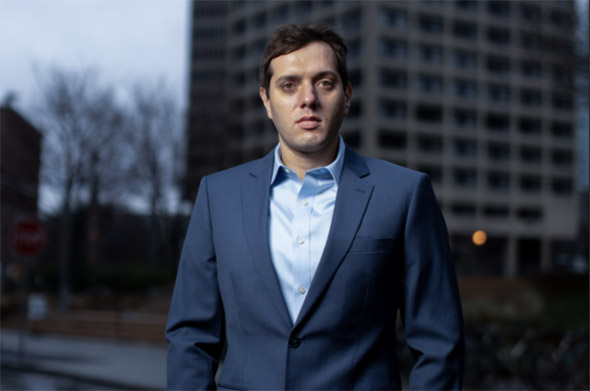What game theory tells us about politics and society
Economist Alexander Wolitzky uses game theory to model institutions, networks, and social dynamics.

“You write down some model to think about conflict, and you realize it’s related to these models used for other purposes, and you have to think about the connection.”
— Alexander Wolitzky, Associate Professor of Economics
Alexander Wolitzky leans back in his office chair, pauses, and starts to describe “Cycles of Conflict: An Economic Model,” a journal article he co-authored.
“There’s a simple idea in that paper,” Wolitzky offers, describing its thesis: While conditions of mistrust can lead to political violence, they may also change as antagonists better understand their opponents, leading to an eventual reduction of hostilities.
Wolitzky’s work is a blend of streamlined concepts like this and complex social phenomena. A professor in MIT’s Department of Economics, he deploys game theory — the formal study of strategic decision-making — to illuminate observed behavior across a range of political and social institutions. Almost no topic is off limits: Wolitzky builds models concerning war and international affairs, labor relations, networks, technology adoption, and more.
“We have the view that economic institutions, the way governments are set up, norms, laws, are all very important for economic development, for growth,” Wolitzky says. “But they can be vague concepts: What do these things mean?” His work digs into the mechanisms underlying those concepts.
Browse more SHASS stories about Social Innovation
Suggested links